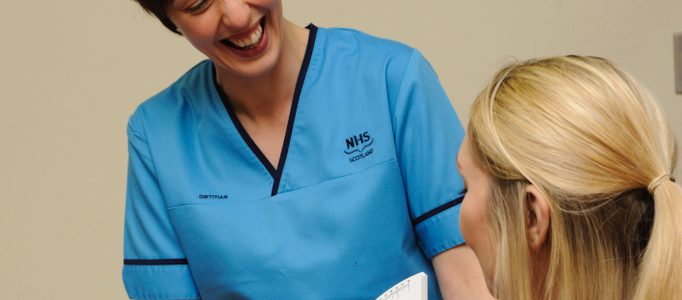Forth Valley GP Practices in Ground Breaking Study
A landmark trial funded by Diabetes UK, which includes several GP practices in Forth Valley, suggests it is possible to put Type 2 diabetes into remission using an intensive weight management programme called Counterweight plus delivered entirely in primary care.
The first year findings of the DiRECT study (Diabetes Remission Clinical Trial) which has been carried out in Scotland and in Tyneside show almost half (45.6%) of those who took part in the programme were in remission after 12 months.
In Forth Valley, patients with Type 2 diabetes in five control medical practices, three in the Stirling area and two in Clackmannanshire, received standard diabetes care from their GP, whilst those in one intervention practice in Falkirk district received a structured weight management programme within primary care. The programme included a low calorie, nutrient-complete diet for 3-5 months, food reintroduction and long-term support to maintain weight loss.
NHS Forth Valley Weight Management Service Lead, Anne Clarke, said: “I think it’s very exciting to see these results. This will help shape how we plan Type 2 diabetes care in the future within the NHS Forth Valley area.”
Professor Mike Lean from the University of Glasgow, lead researcher of the DiRECT trial, explained: “Putting Type 2 diabetes into remission as early as possible after diagnosis could have extraordinary benefits, both for the individual and the NHS. DiRECT is telling us it could be possible for as many as half of patients to achieve this in routine primary care, and without drugs.”
“We’ve found that people were really interested in this approach – almost a third of those who were asked to take part in the study agreed. This is much higher than usual acceptance rates for diabetes clinical trials. ”
Dr Elizabeth Robertson, Director of Research at Diabetes UK, added: “These first year findings of DiRECT demonstrate the potential to transform the lives of millions of people. We’re very encouraged by these initial results, and the building of robust evidence that remission could be achievable for some people.
“The trial is ongoing, so that we can understand the long-term effects of an approach like this. It’s very important that anyone living with Type 2 diabetes considering losing weight in this way seeks support and advice from a healthcare professional.”
Diabetes UK has committed a further £300,000 to DiRECT so participants who wish to continue can be followed for up to three years and the cost-effectiveness of the programme can be evaluated. This will provide more understanding around the longer term benefits, to see if a treatment of this kind could be offered to people with Type 2 diabetes in the future.





